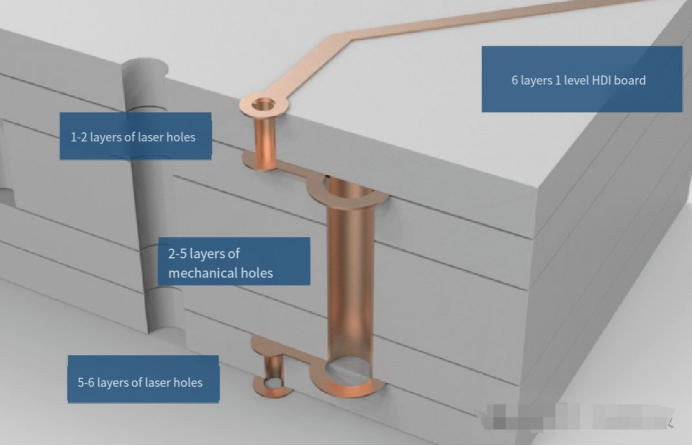

Today, let's start with the simplest stack-up design, the "1-N-1" structure.
The 1 (including the subsequent 1) here refers to the number of layers with blind vias, which in this case represents one layer of blind vias, also known as a first-order structure.
The N here refers to the number of inner layers (not necessarily just cores) without blind vias. For example, if there are 4 layers, combined with the 1, it forms a 1-4-1 stack-up; at the same time, if the N layers have undergone lamination, then this 1-4-1 stack-up is called a first-order double press (the N layers are laminated once + the outermost layer is laminated once = 2 times, hence the term "double press").
This type of product is made by creating a 4-layer board from a single CCL (Coreless Copper Laminate) and then laminating it to form a 6-layer board, which is also a common product on the market, with the structure shown in the cover picture.